Volvo has “delayed” the U.S. launch of the EX30 battery-electric vehicle due to new tariffs on Chinese-made EVs announced in May by the Biden administration. That delay appears likely to last until at least sometime in 2025 when the automaker plans to begin production of the EX30 at a second plant in Ghent, Belgium.

The Volvo EX30 is currently being produced at a plant in Chengdu, China and subject to new tariffs on Chinese imports.
Volvo describes the new EX30 as a “cornerstone” of its ongoing shift from internal combustion engines to battery-electric vehicles. And the U.S. market is seen as a critical step in the transition. But while the EX30 is already on sale and doing quite well in several markets, including Europe, it now could be another year or more before it finally reaches American showrooms.
On Wednesday, the automaker said it is pushing back the U.S. launch and, while it didn’t specifically point fingers, the explanation was obvious. In May, the Biden administration announced an array of new tariffs on Chinese-made goods. EVs, in particular, will see a fourfold increase over the previously duties, rising to 100% and, according to numerous analysts, pricing vehicles like the EX30 and a handful of other Chinese-made vehicles out of the market.
An indefinite “delay”
In an e-mail, spokesperson Russell Datz told Headlight.News that “Today Volvo Car USA is informing retailers and EX30 preorder customers that due to changes in the global automotive landscape, the US introduction of the EX30 will be delayed while we ramp up production at our plant in Ghent, Belgium, with a 2025 target delivery date to be announced.”
The statement stressed that Volvo “remain(s) committed to bringing the EX30 to the U.S.,” and that it is “working hard to get it into customer hands.”
The reality is that the vehicle would simply be priced beyond wthat could be considered competitive if the Swedish-based automaker were to stick with the original plan, importing it from China. Exactly how much the subcompact EV would cost after the new tariffs go into effect is uncertain. Previously, at just $34,950 for the base, single-motor Core package. At the upper end, a twin-motor EX30 Ultra goes for $46,600. (Add $1,195 to both figures for delivery fees.
The EX30
Volvo already offers a handful of all-electric vehicles, such as the Recharge version of its C40. But those products simply replace their gas engines with an electric drive system, a less than optimized approach. Going forward, Volvo is migrating to skateboard-like “architectures” specifically designed for electric propulsion. This offers advantages for both consumers and the automakers, including a lower cost of manufacturing.
The EX30 is the first vehicle Volvo has brought to market using this approach. It’s based on the new SEA platform and will serve as the entry point into the Volvo EV family. A second model, the EX90, will debut later this year. It uses a second EV-only architecture and will serve as the new flagship for the brand.
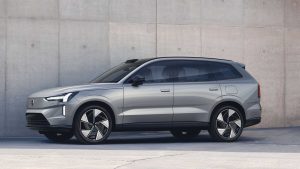
Volvo is moving ahead with the launch of the flagship EX90. It’s being produced at the automaker’s plant in South Carolina.
In an early review of the EX30, Headlight.News wrote, “Based on a couple days driving near-final prototypes, I think Volvo has largely delivered on what it promised. There are a few minor complaints, several of which the automaker expects to resolve by the time the first production models reach U.S. showrooms by mid-2024.”
More Volvo News
Washington changes the game
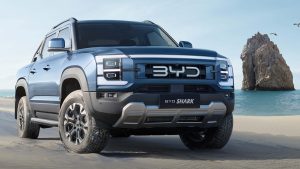
The White House quadrupled tariffs on Chinese auto imports, hoping to head off the same sort of product avalanche that has already disrupted the European automotive market.
The EX30 is already on sale in Europe, among other markets, and is scoring reasonably well with consumers. They purchased 14,500 of the little EVs during the first quarter of 2024 alone.
As for the U.S. market, sales were supposed to begin later this year, with the first couple years expected to be supplied from a plant in Chengdu, China, where Volvo’s parent, Zhejiang Geely, is based. But a lot has changed since plans for the EX30 were put in place.
First, the Inflation Reduction Act passed by Congress in 2023 changed the rules regarding which vehicle – and buyers – could qualify for up to $7,500 in federal tax credits. The critical language sets strict local guidelines for where an EV and its batteries are produced – while also demanding local sourcing for key raw materials, such as lithium and cobalt, used in the batteries. The law did leave a loophole, however. In many cases, buyers regain those lost incentives if they lease, rather than buy their EV.
New tariffs
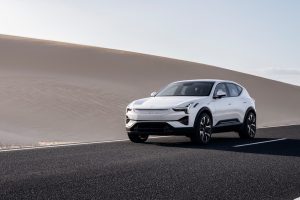
Volvo spin-off Polestar also is producing its latest model, the Polestar 3, in the U.S. to avoid tariffs and gain access to consumer tax incentives.
In May, however, the president stepped up an ongoing trade dispute with China by launching new tariffs covering goods as diverse as steel, solar cells and even medical syringes. But the new rules hit the Chinese auto industry particularly hard. Duties on batteries and raw materials are going up, with a fourfold increase – to 100% — for fully assembled electric vehicles.
The increased tariffs were generally praised by domestic manufacturers, as well as some imports, worried about an impending assault by emerging Chinese EV manufacturers like Geely, BYD and Great Wall. One spokesman for an industry trade group warned that the arrival of such manufacturers could cause an “extinction-level event” because of China’s significant production cost advantages.
Volvo, however, was one of the companies to denounce Biden’s move. “Anything that gets in the way (of free trade) is not a good thing,” declared deeputy CEO, Bjorn Annwall.
Shifting production
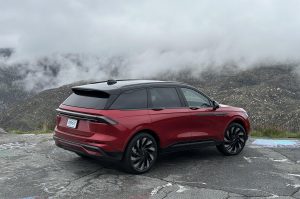
The new tariffs have also clouded the picture for other Chinese automotive imports, such as the Lincoln Nautilus.
Volvo’s original plan for the EX30 called for it to eventually shift production of U.S. models from China to the Ghent plant. It’s now going to happen sooner than expected – and it could cause supply issues for the European market which is also looking at increased tariffs on the Chinese EVs causing havoc there, as well.
As for the big EX90, Volvo now will launch that ahead of the entry EV for American customers. Though the production schedule had slipped a bit, production is now ramping up at the Volvo plant outside Charlotte, South Carolina.
That facility also will produce the Polestar 3 E for Volvo’s EV start-up Polestar.
Volvo isn’t the only automaker worried about new tariffs on Chinese imports. Ford only recently shifted production of the new Lincoln Nautilus to China. General Motors is sourcing the new Buick Envista from a plant there, as well. For now, they appear to be in good shape as they use conventional ICE technology. The new tariffs focus on Chinese-made EVs. But other products could be targeted later.

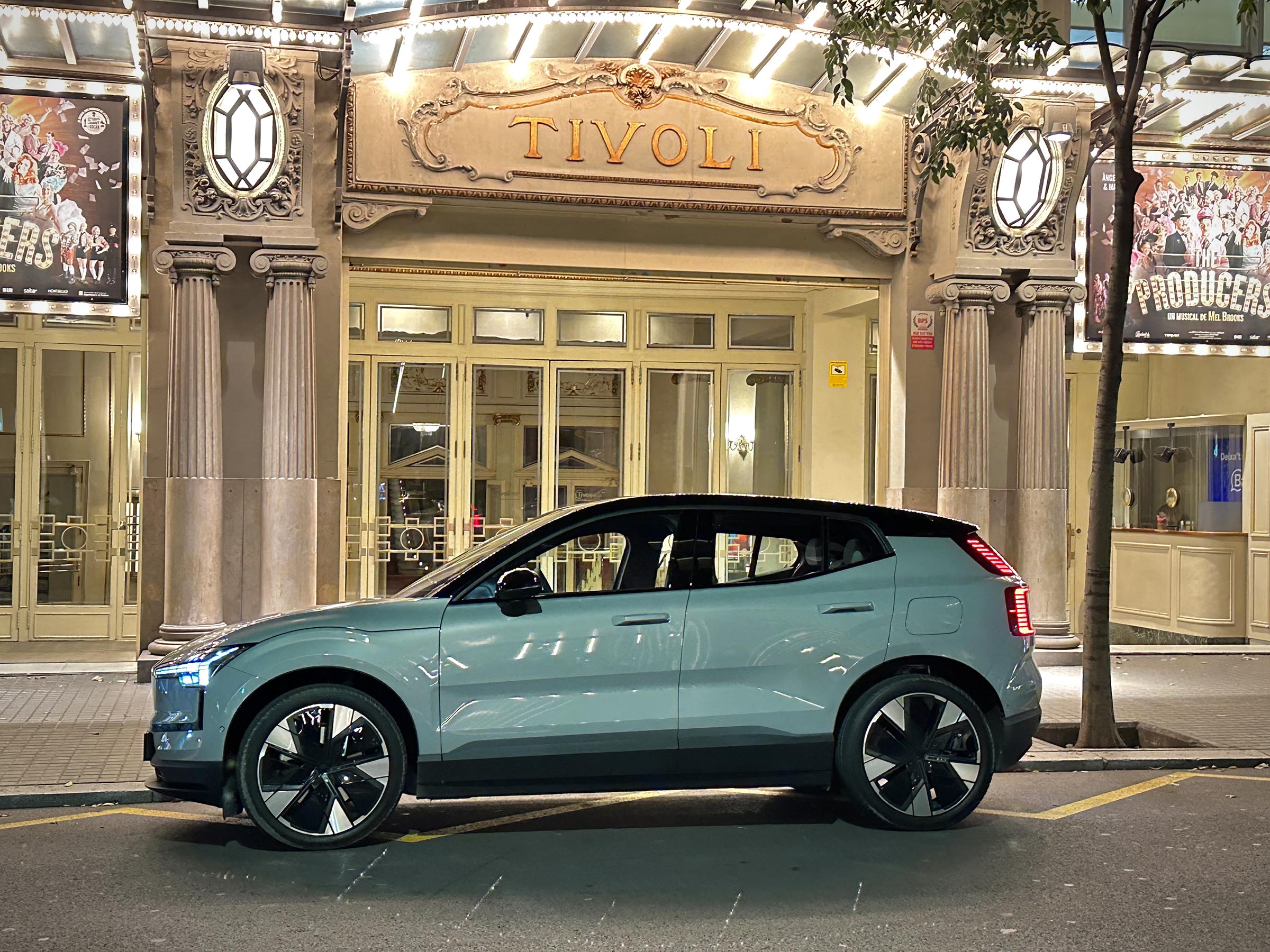
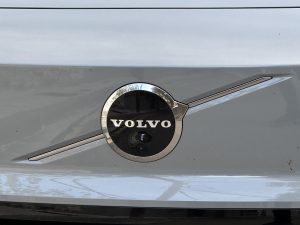
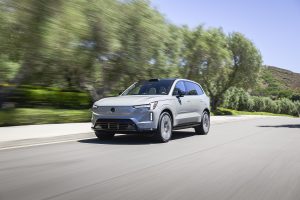
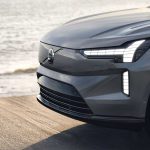
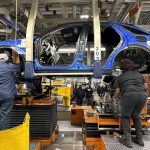
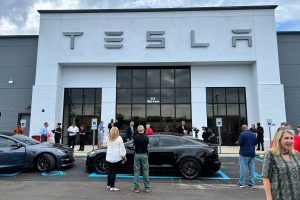
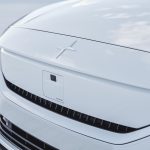
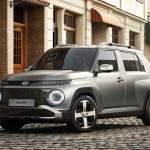
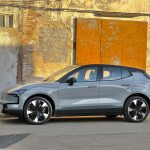
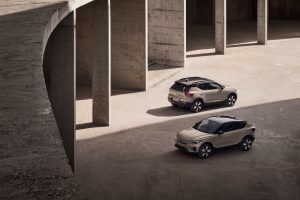
0 Comments